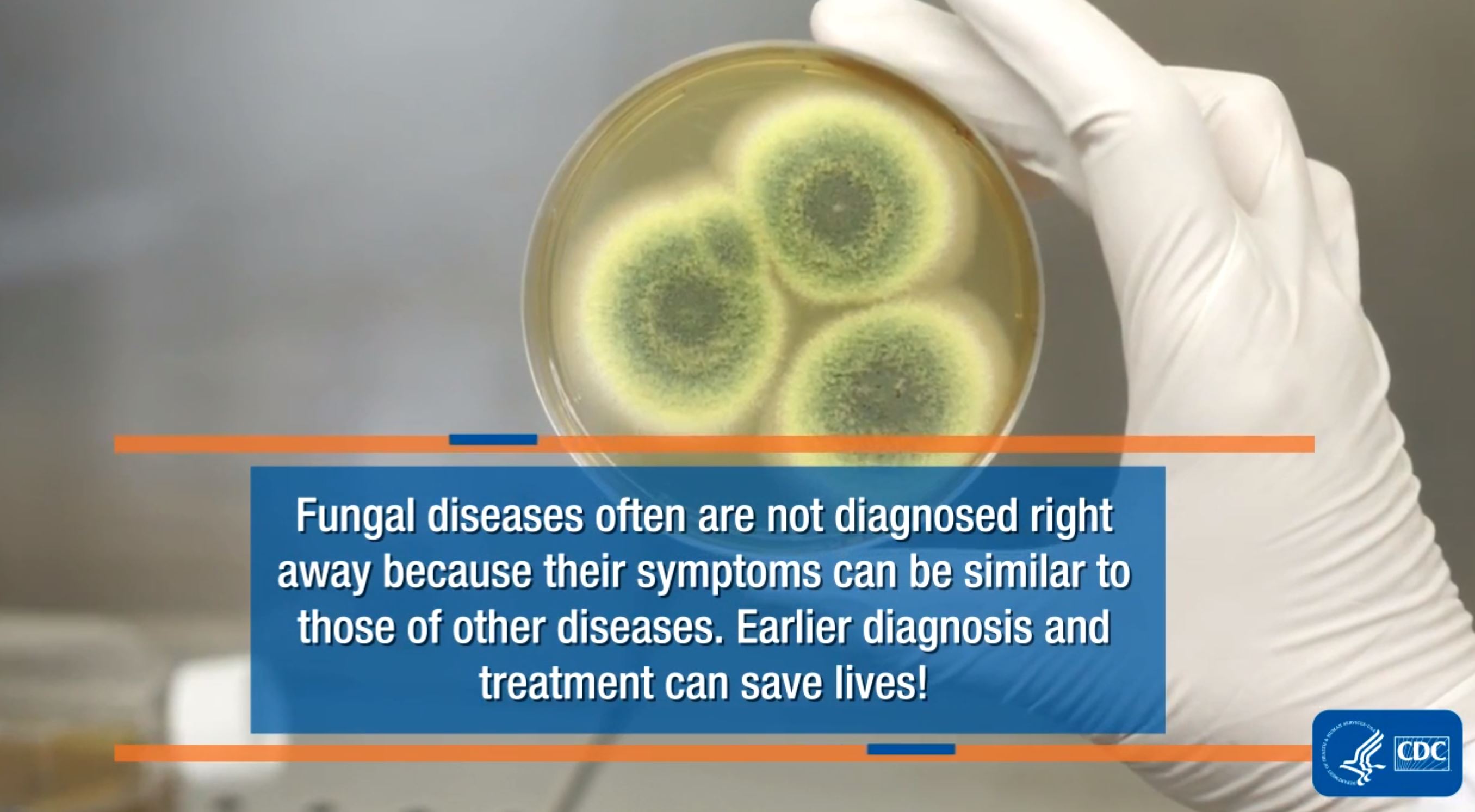Some fungal diseases go undiagnosed and cause serious infections in people in the United States and around the world, leading to illness and death.
Increased awareness about fungal diseases is one of the most important ways we can improve early recognition and reduce delays in diagnosis and treatment. A key clue to when a sick person may have a fungal infection is that he or she is being treated with medications for other types of infection but does not get better.
As part of its second annual Fungal Disease Awareness Week, the U.S. Centers for Disease Control and Prevention (“CDC”) encourages healthcare providers and their patients to “Think Fungus” when symptoms of infection do not get better with treatment.
The Impact of Invasive Fungal Disease

We often think of fungal infections as simply bothersome conditions such as athlete’s foot or toenail fungus.
But certain types of fungal infections, known as invasive fungal disease (IFD), can be dangerous and fatal. IFD is typically caused when fungi invade the body in various ways – such as through the bloodstream or by the inhalation of spores. IFD can also spread to many other organs – such as the liver and kidney. It is associated with serious illness and death, rising drug resistance and increasing healthcare costs.
A Growing Global Health Threat
The Centers for Disease Control and Prevention (CDC) estimates drug-resistant bacterial and fungal infections cost the U.S. healthcare system approximately $20 to $25 billion annually.

Invasive Fungal Disease By the Numbers

Invasive Candidiasis
Invasive candidiasis (Candida) is a common hospital-acquired infection in the U.S., resulting in about 46,000 cases each year.
Invasive Aspergillosis
Invasive aspergillosis (Aspergillus) occurs most often in people with weakened immune systems or lung disease, and its prevalence is rising among stem cell and solid organ transplant recipients.
Invasive Fungal Disease is On the Rise
An increasing number of people in the U.S. have compromised immune systems, putting them at greater risk for invasive fungal disease.
High-risk groups include:
- Hospitalized patients
- Cancer or transplant patients
- Patients undergoing surgery
- Patients with chronic diseases

Candida auris (C. auris) is an emerging drug-resistant fungus that spreads quickly and has caused serious and deadly infections in over a dozen countries. The CDC estimates that more than one in three patients in the U.S. with invasive C. auris infection will die.
The Need for More Effective Therapies
No new antifungals have been approved for the treatment of invasive Candida infections or the prevention of Candida or Aspergillus infections in over a decade. Currently available treatments for IFD have significant limitations such as toxicities/side effects, inconsistent achievement of target drug levels, interactions with other drugs, and increasing microbial resistance. As the urgency around IFD rises, multiple biopharma companies and researchers are working to develop new therapies to treat and prevent them.

There is an increasingly urgent need to develop new therapies for IFD, particularly medications that can be used to prevent fungal infections among patients with compromised immune systems.
References
- https://www.cidara.com/rezafungin/#opportunity
- http://ir.cidara.com/phoenix.zhtml?c=253962&p=RssLanding&cat=news&id=2354755
- https://wwwnc.cdc.gov/eid/article/23/2/15-2042_article
- https://www.cdc.gov/fungal/diseases/candidiasis/invasive/statistics.html
- https://www.cdc.gov/fungal/diseases/aspergillosis/statistics.html
- https://www.cdc.gov/fungal/candida-auris/c-auris-drug-resistant.html
- htps://www.cdc.gov/fungal/diseases/candidiasis/invasive/statistics.html
- https://www.cdc.gov/fungal/diseases/candidiasis/pdf/Candida_auris_508.pdf
- https://www.cdc.gov/fungal/cdc-and-fungal.html


